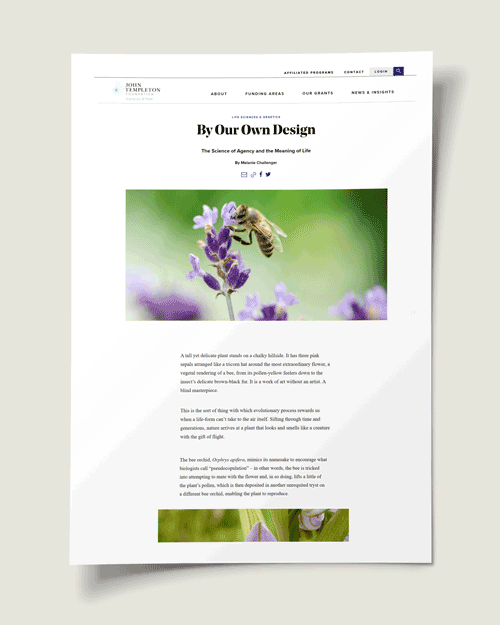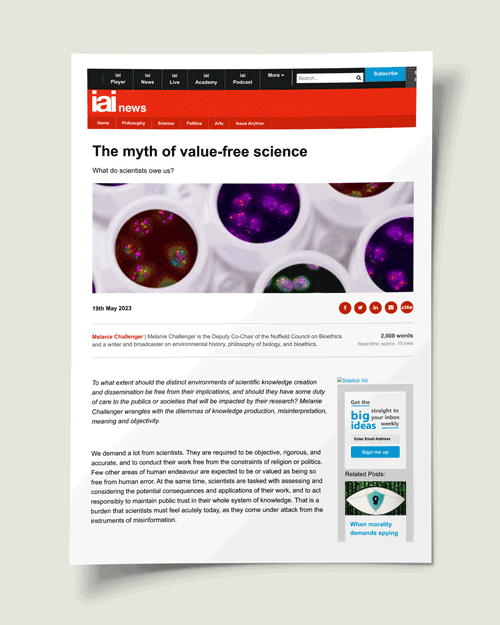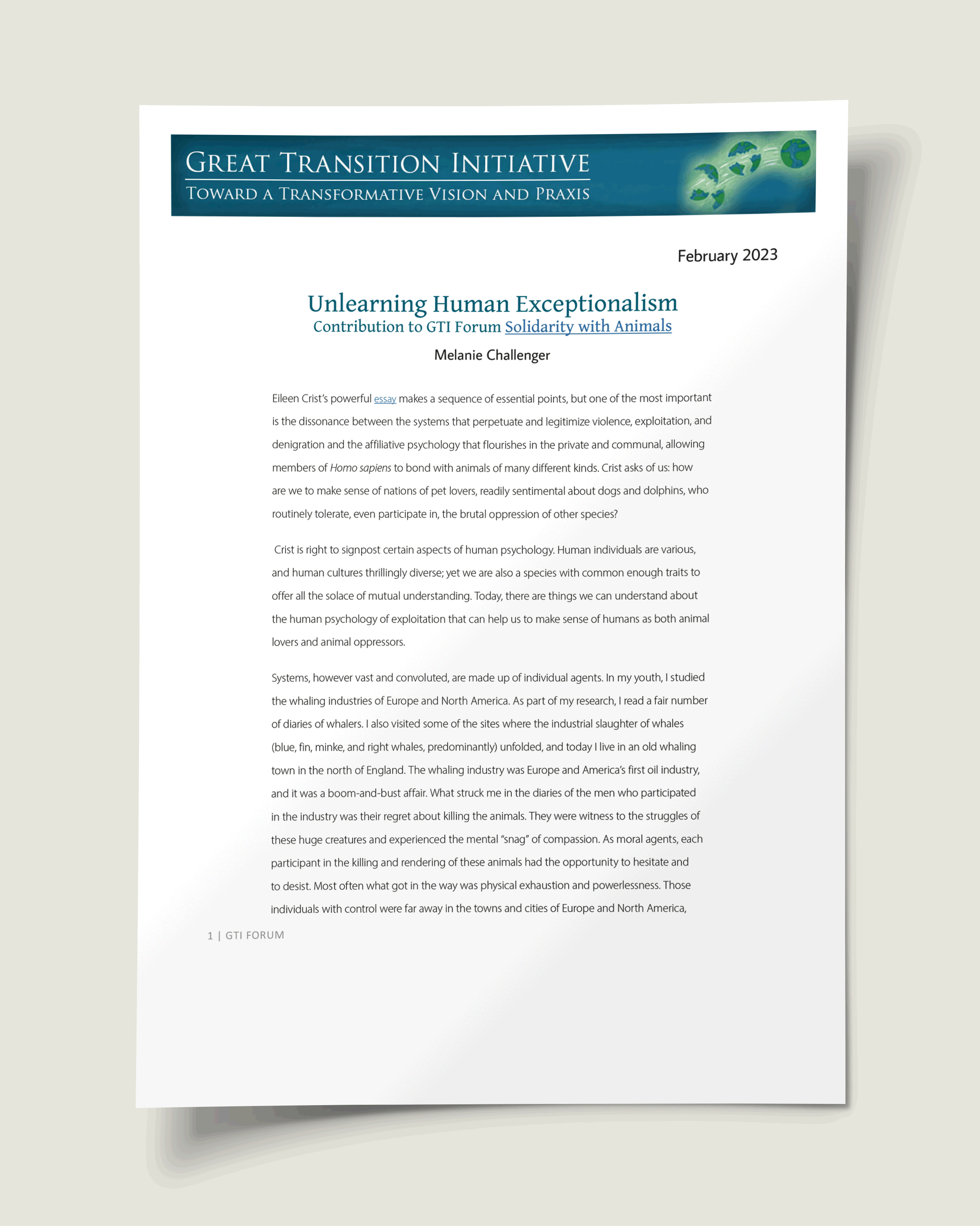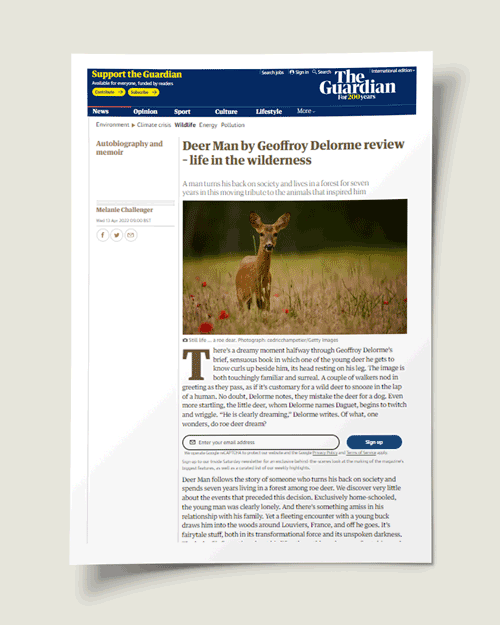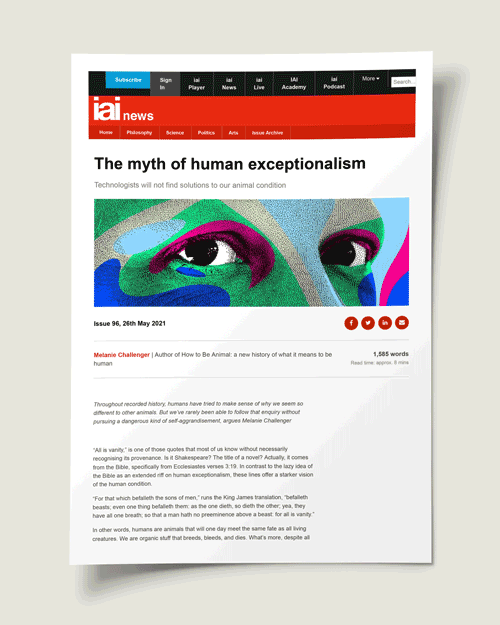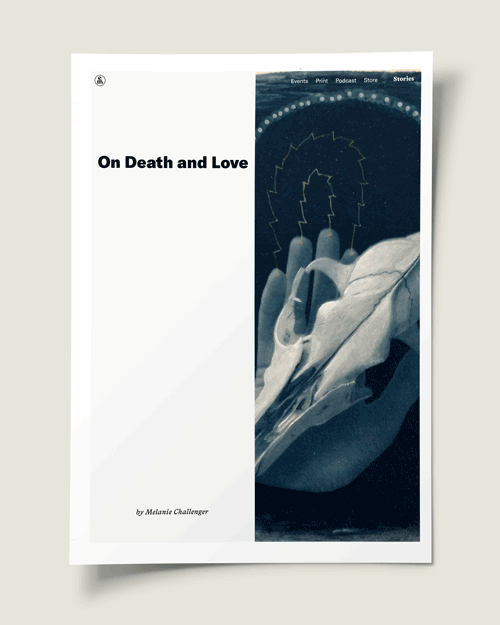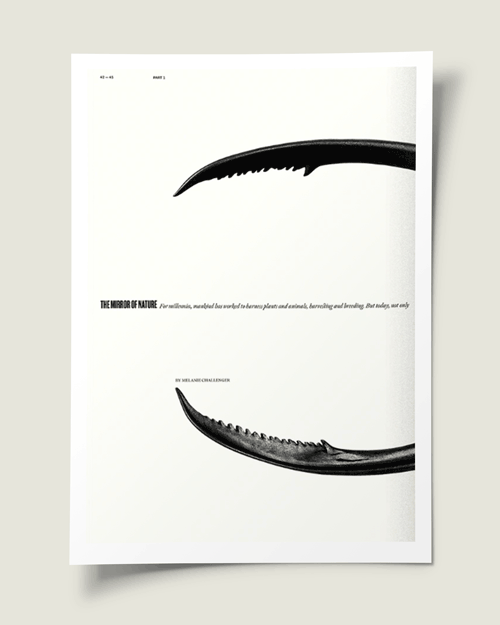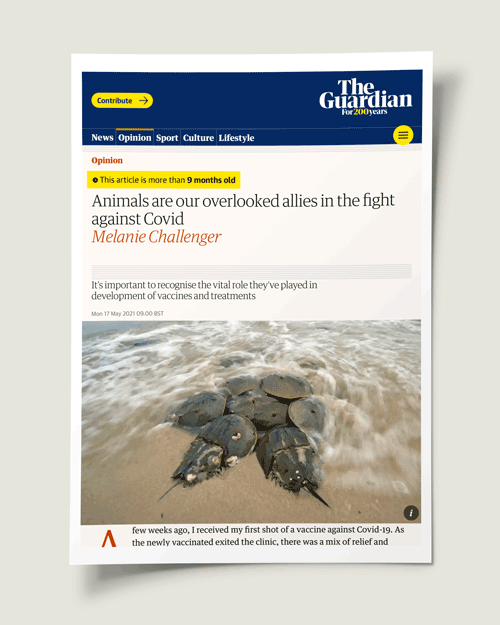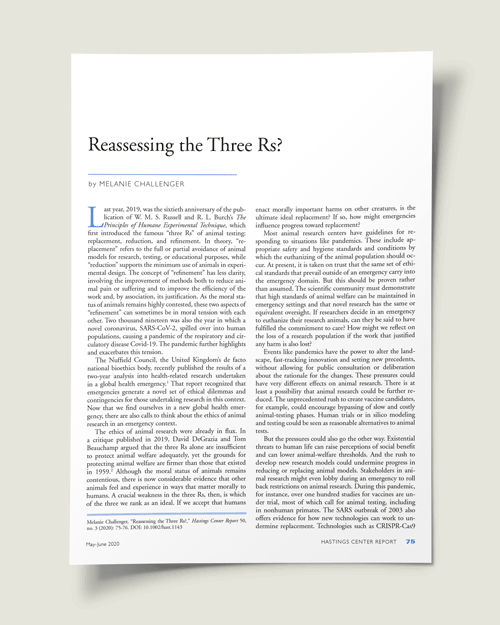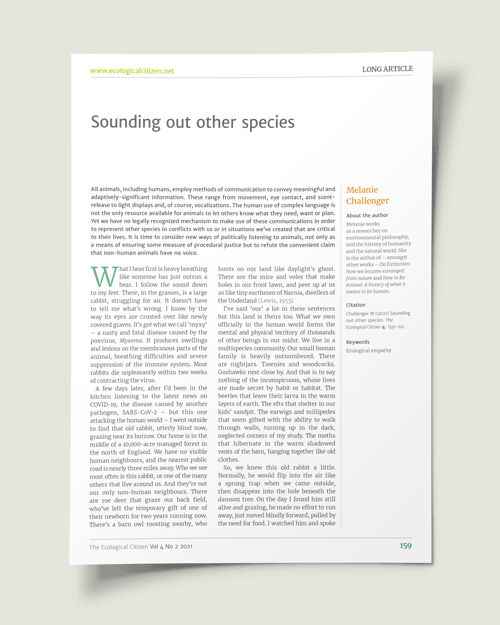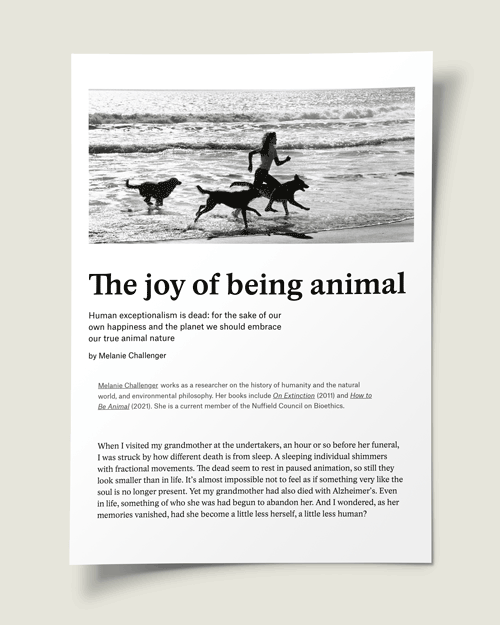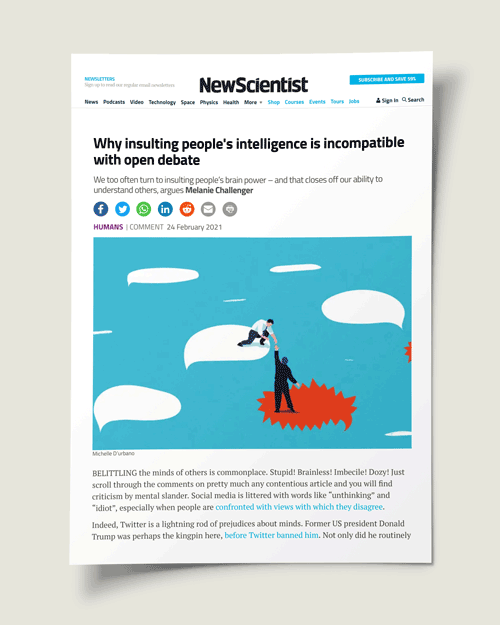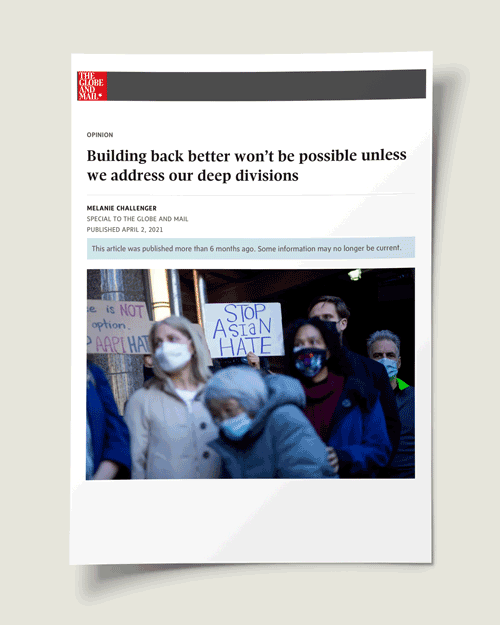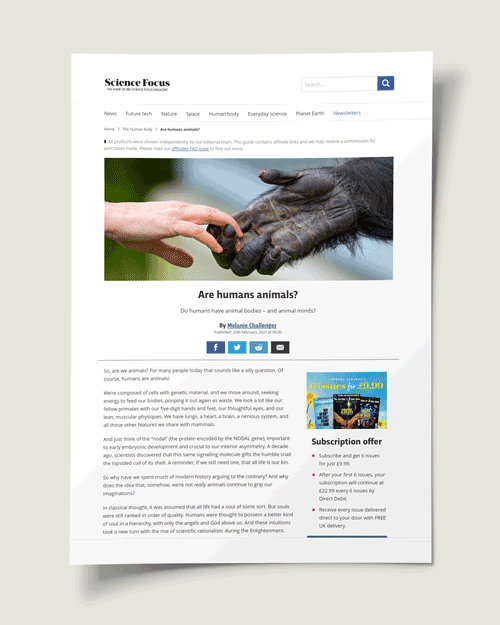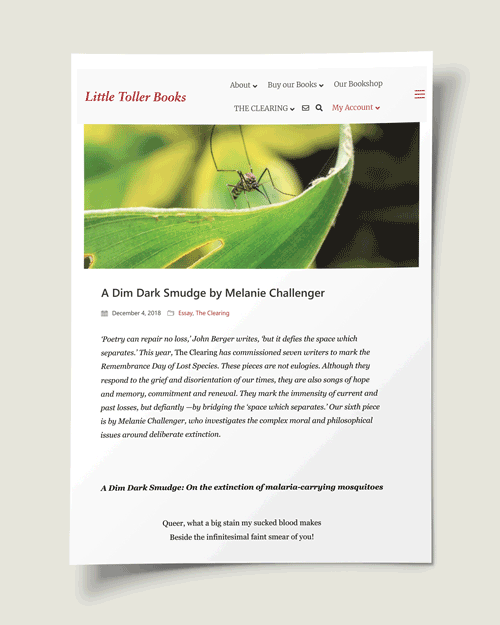JOHN TEMPLETON FOUNDATION - June 2023
The Science of Agency and the Meaning of Life
“A tall yet delicate plant stands on a chalky hillside. It has three pink sepals arranged like a tricorn hat around the most extraordinary flower, a vegetal rendering of a bee, from its pollen-yellow feelers down to the insect’s delicate brown-black fur. It is a work of art without an artist. A blind masterpiece. This is the sort of thing… ”
IAI - THE INSTITUTE OF ART AND IDEAS - 05/19/2023
What do scientists owe us?
“To what extent should the distinct environments of scientific knowledge creation and dissemination be free from their implications, and should they have some duty of care to the publics or societies that will be impacted by their research? Melanie Challenger wrangles with the dilemmas of knowledge production, misinterpretation, meaning and objectivity.”
GREAT TRANSITION INITIATIVE - February 2023
A contribution to GTI Forum “Solidarity with Animals,” Great Transition Initiative
“Eileen Crist’s powerful essay makes a sequence of essential points, but one of the most important is the dissonance between the systems that perpetuate and legitimize violence, exploitation, and denigration and the affiliative psychology that flourishes in the private and communal, allowing members of Homo sapiens to bond with animals of many different kinds. Crist asks of us: how are we to make sense of nations of pet lovers, readily sentimental about dogs and dolphins, who routinely tolerate, even participate in, the brutal oppression of other species?”
THE GUARDIAN - 04/13/2022
A man turns his back on society and lives in a forest for seven years in this moving tribute to the animals that inspired him
“Deer Man follows the story of someone who turns his back on society and spends seven years living in a forest among roe deer. […] a fleeting encounter with a young buck draws him into the woods around Louviers, France, and off he goes. It’s fairytale stuff, both in its transformational force and its unspoken darkness. The lack of information about his life – the ruthless absence of autobiography – can seem odd to a modern reader. Yet the strength of this book is its singular focus on the deer.”
IAI - THE INSTITUTE OF ART AND IDEAS - 05/26/2021
An article on the danger of technologists designing what it is to be human
Throughout recorded history, humans have tried to make sense of why we seem so different to other animals. But we’ve rarely been able to follow that enquiry without pursuing a dangerous kind of self-aggrandisement, argues Melanie Challenger.
EMERGENCE MAGAZINE - 01/20/2022
As Melanie Challenger examines the belief in human exceptionalism that has devastated life on this planet, she wonders if our desire to outrun death is hindering our capacity to love
“I met Death in my early twenties. I had already lost loved ones before this time. A friend at school was taken by leukemia in a breathtaking six weeks one strange, hot summer. My grandfather, Eric, and my uncle, Tim, both died before their time.”
INQUE MAGAZINE - 11/16/2021
Melanie Challenger’s contribution to the first issue of the annual literary magazine INQUE
“For millenia, mankind has worked to harness plants and animals, harvesting and breeding. But today, not only do we make living beings useful, we also steal their image, making them into something they never were, copies of life both strange and empty.”
THE GUARDIAN - 05/17/2021
Opinion piece on the complexities and ethical dilemmas of animal testing
“A few weeks ago, I received my first shot of a vaccine against Covid-19. As the newly vaccinated exited the clinic, there was a mix of relief and elation on people’s faces. We exchanged little smiles of solidarity. If we could have burst into spontaneous applause, I’m sure we would have done.”
THE HASTINGS CENTER - 06/29/2020
A short paper on animal testing in the pandemic
“In recent years, the established paradigm of the three Rs of animal research—refinement, replacement, and reduction—has come under scrutiny. A crucial weakness in use of the three Rs is uncertainty about how they should be prioritized. Events like pandemics have the power to alter the research landscape, fast‐tracking innovation and setting new precedents. Existential threats can raise perceptions of social benefit and can lower animal‐welfare thresholds. The rush to develop new research models may also undermine progress in reducing or replacing animal models.”
THE ECOLOGICAL CITIZEN - 05/06/2021
A paper on mechanisms of justice for other species
“All animals, including humans, employ methods of communication to convey meaningful and adaptively-significant information. These range from movement, eye contact, and scent-release to light displays and, of course, vocalizations. The human use of complex language is not the only resource available for animals to let others know what they need, want or plan. Yet we have no legally recognized mechanism to make use of these communications in order to represent other species in conflicts with us or in situations we’ve created that are critical to their lives.”
AEON - 04/06/2021
A 2021 long essay on human exceptionalism and the importance of accepting that we’re animals
“When I visited my grandmother at the undertakers, an hour or so before her funeral, I was struck by how different death is from sleep. A sleeping individual shimmers with fractional movements. The dead seem to rest in paused animation, so still they look smaller than in life. It’s almost impossible not to feel as if something very like the soul is no longer present.”
NEW SCIENTIST - 02/24/2021
A 2021 comment piece on the new science of “mentalism”
“In an age of political polarisation and misinformation, the echo chambers created by social media do more than just seal us off from diverse possibilities and points of view; they muffle our ability to care about those whose views we might not like.”
THE GLOBE AND MAIL - 04/02/2021
A 2021 opinion piece on healing divisions in a post-pandemic world
“Everybody is fixated on a post-COVID world. Many hope that when this pandemic is history, we will emerge into a healthier, happier place. Consider how often we’ve heard the line “Build back better.” It’s even got its own hashtag. Recovery from the stresses and privations of the worst global health crisis in living memory has become synonymous with positive change…”
BBC - SCIENCE FOCUS - 02/25/2021
A 2021 editorial on the struggle we have with the idea that we’re animals.
“If you listen only to some cognitive scientists and technologists, you might think that our minds are like a mathematical formula that we will soon be able to lift out of our animal bodies and download into a human simulation, like a robot body or computer.”
LITTLE TOLLER BOOKS - 12/04/2018
A 2018 essay commission on the complex interplay of genetic engineering, mosquitoes, and malaria.
“The writer David Quammen posed an interesting question to me. Would anybody mind if we sought to drive the Plasmodium parasites to extinction? These questions are reminders that ideas of moral significance often hide from sight in actions and need a fair bit of unpacking.”
List of Articles by Melanie
- BY OUR OWN DESIGN – John Templeton Foundation, June 2023
- THE MYTH OF VALUE FREE SCIENCE – Institute of Art and Ideas, 2023
- UNLEARNING HUMAN EXCEPTIONALISM – Great Transition Initiative, 2023
DEER MAN BY GEOFFROY DELORME REVIEW – LIFE IN THE WILDERNESS — The Guardian, 2022
- ON DEATH AND LOVE — Emergence Magazine, 2022
- THE MIRROR OF NATURE — Inque Magazine, 2021
- THE ANIMAL THAT I AM — The Institute of Art and Ideas, 2021
- SOUNDING OUT OTHER SPECIES — The Ecological Citizen, 2021
- ANIMALS ARE OUR OVERLOOKED ALLIES IN THE FIGHT AGAINST COVID — The Guardian, 2021
- THE JOY OF BEING ANIMAL — Aeon, 2021
- BUILDING BACK BETTER WON’T BE POSSIBLE UNLESS WE ADDRESS OUR DEEP DIVISIONS — The Globe and Mail, 2021
- WHY INSULTING PEOPLE’S INTELLIGENCE IS INCOMPATIBLE WITH OPEN DEBATE — New Scientist, 2021
- ARE HUMANS ANIMALS? — BBC Science Focus, 2021
- REASSESSING THE THREE RS? — The Hastings Center, 2020
- A DIM DARK SMUDGE: ON THE EXTINCTION OF MALARIA-CARRYING MOSQUITOES — Little Toller Books, 2018

